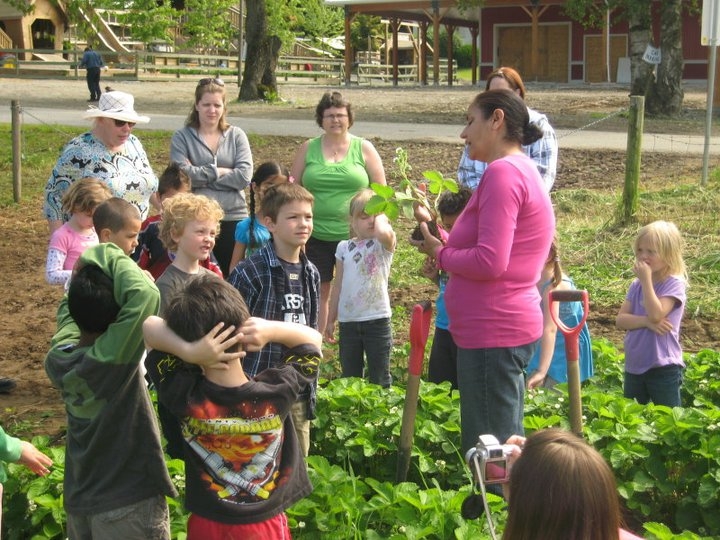A farmer’s legacy is an honourable one; that is to raise the healthiest food sources for the community, and leave the land in a better state for future generations. From the soil in which crops are sown, to the pesticides used to protect them; from the grain that feeds the animals, to the water that nourishes all, every step in the agriculture process can affect the environment in some way. The initiatives offered by the BC Agriculture Council provide opportunities to every grower so they can follow the tradition of sustainability.
The Environmental Farm Plan (EFP) program, a federal, provincial and territorial partnership, is a process which identifies on-farm environmental risks and rewards farmers for successful sustainable practices. The objective is to reduce agriculture’s impact on the environment and help farmers access the funding in place to address any action items in the work plan.
ARDCorp is a subsidiary of BC Agriculture council, working with the farmers to guide them through the EFP process. They make it as easy as possible, offering to schedule a complimentary and confidential visit from a planning advisor during down time on the farm. The visit usually takes a morning, and includes a questionnaire to determine whether the farm is in compliance with regulations and addresses any changes that might be made.
The EFP workbook, once completed, is for the farmer to keep and use as a guide, outlining best practices and highlighting what the farm is already doing right. If the farmer wishes to do so, he/she may volunteer to follow through with any suggested changes and request a farm sign. Sometimes, no changes are necessary at all and the farm will qualify immediately for an EFP shingle and possible funding.
If there are any tweaks in operations to be made, they usually have far-reaching benefits, both to the environment, and the farm. The long term cost- and labour-saving measures and improved crop and animal quality far outweigh any initial investment of time and money.
Stan Vander Waal, owner of Rainbow Greenhouses in Chilliwack, is enthusiastic about his state-of-the-art irrigation system, which reduces water usage by 90 per cent, and saves over 90 per cent of fertilizer usually lost to run-off. This cost-effective system, partly funded by the EFP, is one way in which farmers can gain from Beneficial Management Practices Funding (BMP). The BMP funding is available for all farmers to apply for once they have completed their EFP.
“So, what I would suggest,” says, Vander Waal, “is if you’re a new farmer, but haven’t joined the Environmental Farm Plan, this is a [chance] to get a confidential assessment of what may or may not be right on your farm, and take advantage of the opportunities.”
Vander Waal’s operation is one of over 4,000 farms and ranches in BC which have already joined the EFP program. Others, like Fairway Poultry, Mardalen Holsteins, Summerhill Winery and the Christmas Ranch are proud to be a part of the growing group of sustainable and profitable enterprises. Even organic farms, already meeting certain environmental standards, can go through the process and earn the EFP signage to display and take advantage of the available funding.
Farms who participate in the programs through the BC Agriculture Council will benefit financially and know that their farm is having less of an impact on the health of the water, air and soil. Stability meets sustainability.
Vander Waal encourages others to take the step towards obtaining an EFP, and adds, “Since farmers generally have an overwhelming desire to be sustainable and to do what’s right for the environment, this gives them a choice to improve their process.”
Also making choices are consumers who are keenly aware of the foods they are feeding their families. Every day, more and more actively seek out produce, meat and grains grown with care and consideration for the environment.
It makes sense for farmers to adopt best practices, choosing to make positive changes and shine a light on any environment-friendly decisions they are making in their operations. The BC Agriculture Council’s website states, “Many EFP participants enjoy increased profitability as a result of reduced water use, decreased waste, increased productivity and new consumer confidence.” The site also contains detailed information about the EFP process and lists the numerous categories included in the BMP funding.
The culture of farming includes management of the land, incorporation of agricultural advancements and following best practices with the goal to have the most profitable farm possible. The EFP plan can help every farmer achieve this goal, and feel good about the choices they make affecting the environment.












